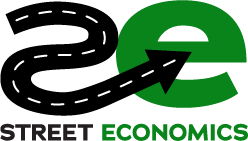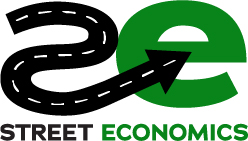Good morning, local leaders. This daily economic intelligence digest is crafted specifically for cities that reject outdated strategies, bureaucratic inertia, and yesterday’s economic development approaches. Realistic, actionable, and clearly stated, we’ll equip you to make proactive, informed decisions today.
Retailers Brace for Higher Import Costs
Major U.S. retailers issued warnings that the latest round of import tariffs will lead to higher prices on everything from clothing to electronics, starting within weeks. While some retailers try to absorb part of the increase, most say it’s inevitable consumers will see noticeable price jumps at checkout.
Why This Matters: Local businesses will face pressure as costs rise; consumers might cut back on discretionary spending. This could slow local sales tax revenue and hit small businesses hardest. City leaders should proactively communicate with the local business community to assess risks and plan potential support measures.
Housing Market Activity Slows Again
Existing home sales nationwide dropped by 4 percent in March as buyers stepped back due to high mortgage rates and limited inventory. This marks another consecutive month of slowing activity, reflecting buyer hesitation despite stable home prices in most areas.
Why This Matters: Fewer home sales translate to weaker property transfer tax revenue and a cooling local real estate market. Cities relying heavily on these revenues should monitor trends closely and consider adjusting forecasts and budgets accordingly.
Truck Driver Shortage Deepens Nationwide
A worsening shortage of truck drivers is starting to disrupt deliveries for retailers and manufacturers across the U.S., causing longer wait times and higher shipping costs. Several trucking firms report needing to significantly boost driver wages to attract and retain workers.
Why This Matters: Delayed shipments and higher logistics costs can strain local businesses, especially in communities relying on just-in-time inventory. Local economic development teams might explore workforce partnerships or training programs to address trucking and logistics workforce needs in their region.
Small Businesses Report Increased Hiring Difficulty
Small businesses across the country reported in a national survey that filling open positions has become even tougher. Many small business owners have raised pay significantly but still struggle to attract qualified workers, citing a mismatch in skills as a growing problem.
Why This Matters: Persistently open positions can limit business growth and local economic development. Cities could help by facilitating stronger connections between local businesses and education providers to improve workforce readiness, and ensure alignment between training programs and local hiring needs.
Energy Prices Stable, But Volatility Looms
Energy prices, including oil and natural gas, showed temporary stabilization after recent swings, easing some cost pressures on consumers and businesses. Analysts warn, however, that global supply uncertainties still pose risks for renewed volatility in coming months.
Why This Matters: Temporary stability in fuel costs provides some budgetary breathing room for city departments and local businesses. Nevertheless, local leaders should remain cautious and maintain conservative forecasts, ready for potential energy-price spikes later this year.
Street Economics® is a community-focused economic intelligence service that cuts through the jargon and noise to help city leaders and citizens make sense of financial trends. It’s like having a sharp econ advisor on call, translating global and national developments into local impact and action. With Street Economics®, you get timely insights, irreverent analysis (as you’ve seen), and practical takeaways for your community. In an era of information overload, we help you figure out what actually matters for your city’s budget, businesses, and families. Ready to make smarter decisions and drive your local economy forward? Check out Street Economics® at streeteconomics.ai and see how our daily briefings and tools can help your community thrive. Go ahead, join the movement, your city’s economic future won’t wait!




Comments are closed